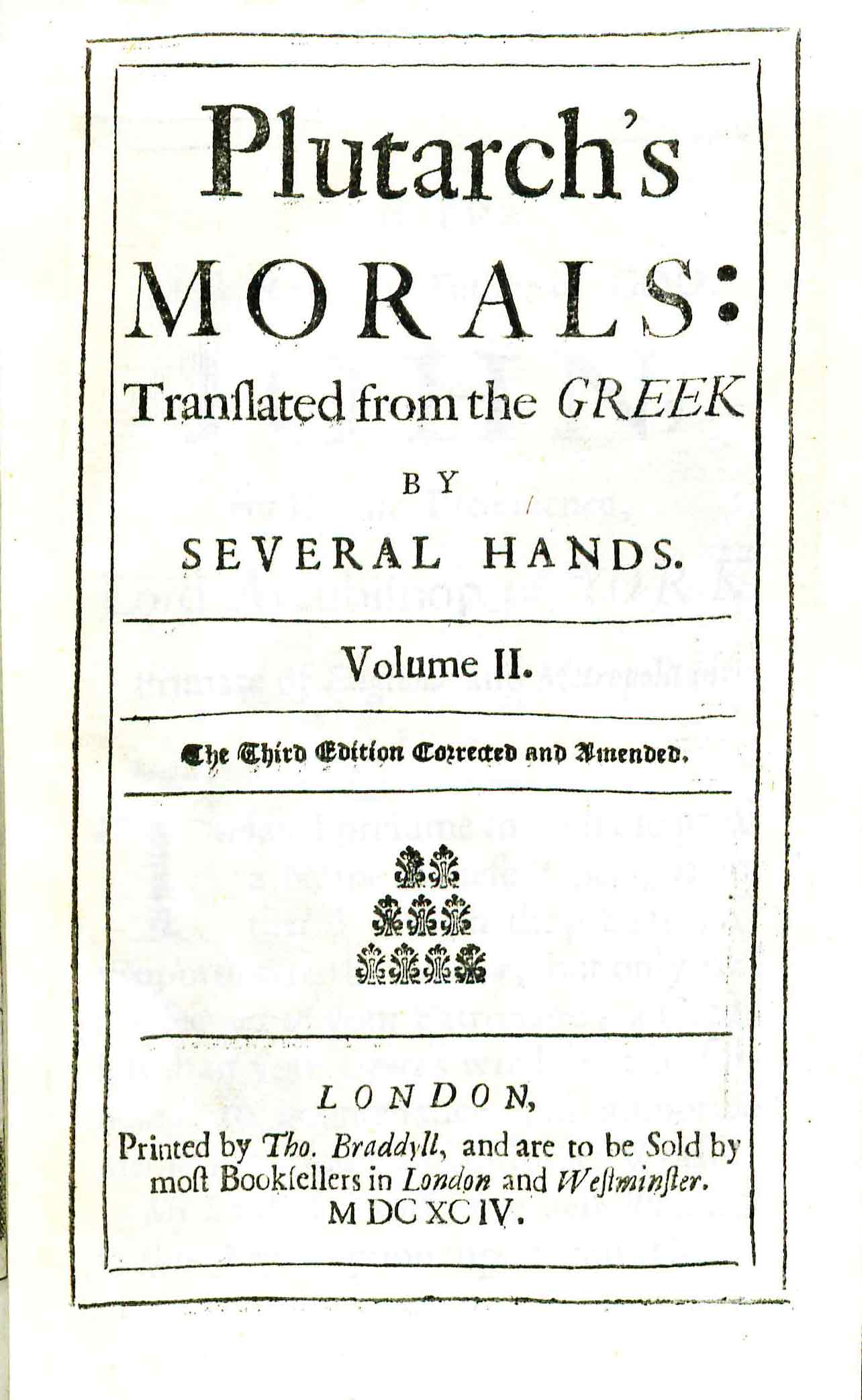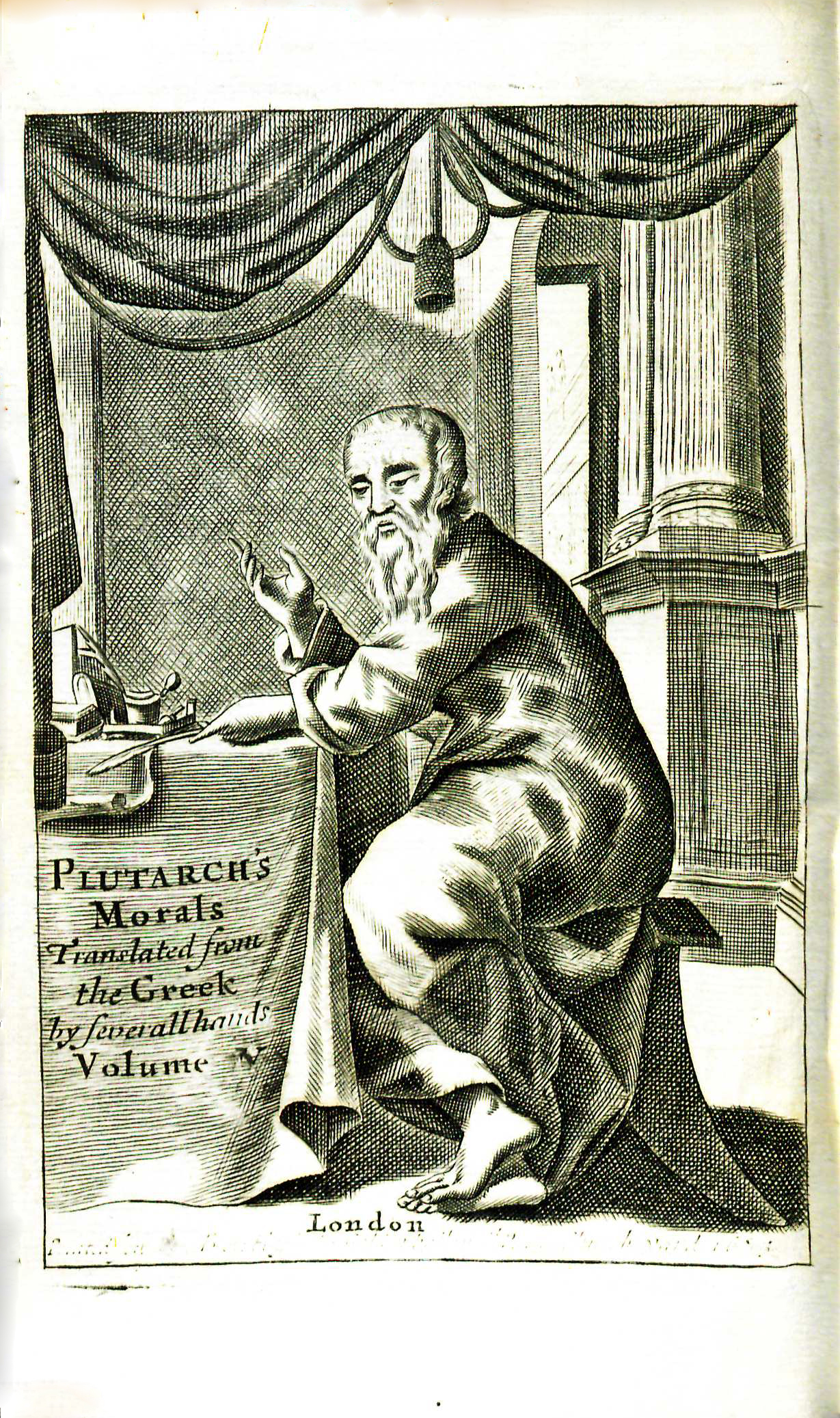Plutarch's Morals
by Plutarch
| Plutarch's Morals | |
|
Title page from Plutarch's Morals, volume two, George Wythe Collection, Wolf Law Library, College of William & Mary. | |
| Author | Plutarch |
| Translator | M. Morgan, S. Ford, W. Dillingham, T. Hoy and others |
| Published | London: Printed by Tho. Braddyll, and are to be sold by most Booksellers in London and Westminister |
| Date | 1694 |
| Edition | Third, corrected and amended |
| Language | English |
| Volumes | 5 volume set |
| Desc. | 8vo (19 cm.) |
| Location | Shelf I-3 |
Plutarch's greatest known contribution in Moralia is the sense in which he is able to portray a complex analysis of his subjects by shifting his lens between areas of humanities and social science. When describing the subjects of his work, he makes clear the personality traits that define them and explores in depth the anatomy of these traits, specifically the tendency for traits to have both positive and negative functionality.[3] Drawing again on his roots in Platonism, this descriptive force extends to his philosophical discussion, where he uses analogies, metaphors, and mythology to weave together the psychological, logical, and ethical considerations of his subject matter.[4]
Evidence for Inclusion in Wythe's Library
Listed in the Jefferson Inventory of Wythe's Library as "[Plutarch’s] Morals 4.v. 8vo." and given by Thomas Jefferson to his granddaughters, Ann and Ellen Randolph. The precise edition owned by Wythe is unknown. George Wythe's Library[5] on LibraryThing indicates as much, adding "Numerous editions of the Morals were published." The Brown Bibliography[6] lists a fifth edition published in London in 1718 based on a copy owned by Jefferson. Because we do not know the precise edition Wythe owned, the Wolf Law Library purchased an available copy of the London third edition (1694).
Description of the Wolf Law Library's copy
Late 17th century octavo, uniformly bound in calf with five raised bands and original spine labels. Neat pencil marginalia and notes in all volumes. Purchased from Marc J. Bartolucci.
Images of the library's copy of this book are available on Flickr. View the record for this book in William & Mary's online catalog.
See also
References
- ↑ Online Library of Liberty, s.v. "Plutarch: About the Author," accessed September 28, 2013.
- ↑ George Karamanolis, "Plutarch" in Stanford Encyclopedia of Philosophy (Stanford University, 1997- ), accessed September 28, 2013.
- ↑ Laurel Fulkerson, "Plutarch on the Statesman Stability, Change, and Regret," Illinois Classical Studies 37 (2012): 51-74.
- ↑ Karamanolis, "Plutarch."
- ↑ LibraryThing, s. v. "Member: George Wythe," accessed on November 18, 2013.
- ↑ Bennie Brown, "The Library of George Wythe of Williamsburg and Richmond," (unpublished manuscript, May, 2012) Microsoft Word file. Earlier edition available at: https://digitalarchive.wm.edu/handle/10288/13433

